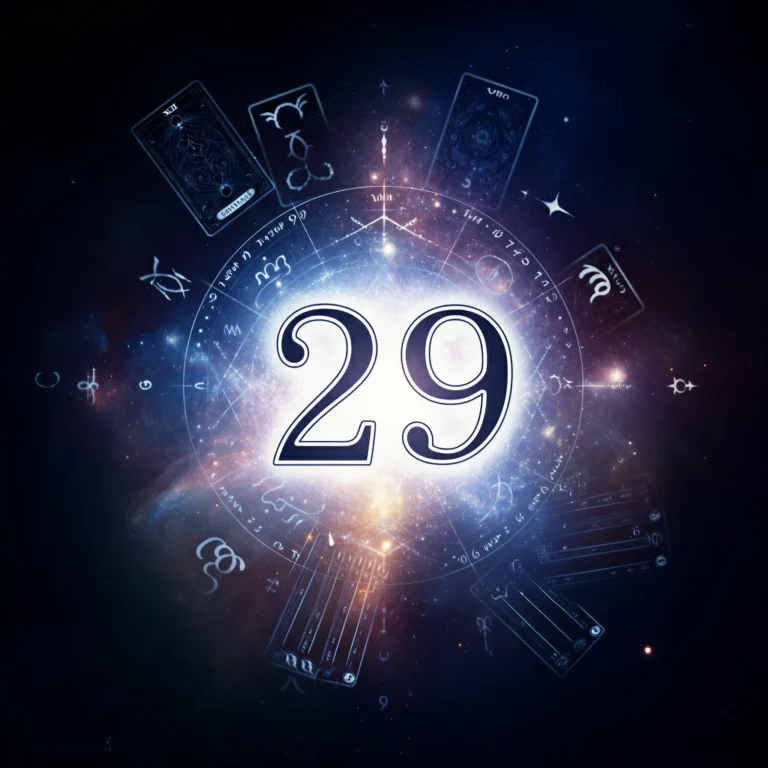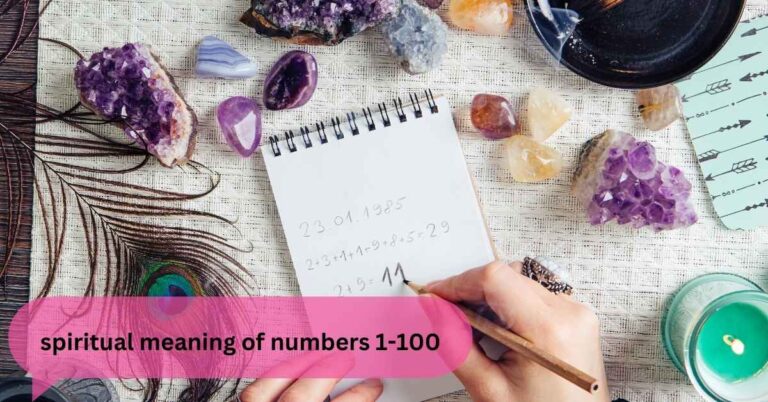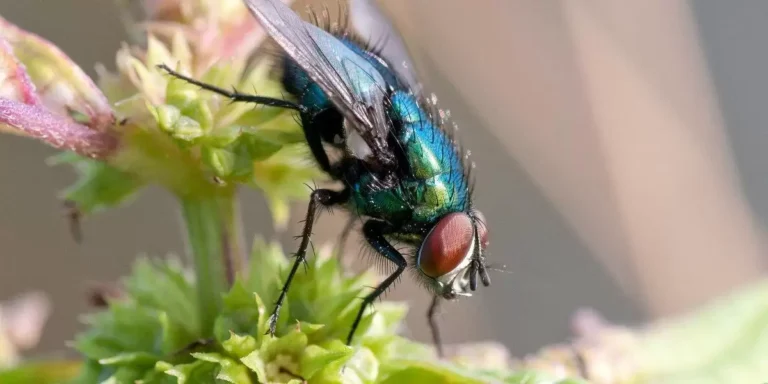When a black cat stares at you, it is sure to raise questions of curiosity or superstition, based on one’s beliefs. Even in today’s society, black cats are often associated with negative connotations and stereotypes. In other cultures, a cat’s stare is thought to be magical.
In other cultures, it’s simply a manifestation of their innate cat inquisitiveness. Cats, including black ones, are known for their keen observation, and their stare could just mean they’re alert or interested in their surroundings.
So myth-busting is the first step in truly understanding this behavior and, in turn, seeing your cat’s instincts and habits shine through. Here’s what could explain this stare and how it relates to the overall perception of black cats.
Black Cats Through History
Black cats have long symbolized different meanings in cultures and times. Their importance rarely diminishes, although it may shift according to the ideologies and worldviews of the cultures where they reside. In Ancient Egypt, the citizens worshipped them as divine creatures.
They were linked to witchcraft in very problematic ways, especially during the Middle Ages. Their historical narrative is as interesting as it is complicated.
Ancient Egyptian Reverence Explained
In Ancient Egypt, black cats represented protection and prosperity. They were intimately connected with the goddess Bastet, who was shown as a lioness or house cat. Bastet symbolized the domestic, fertility, and the protection of the home.
Harming a black cat was to offend the divine, and it was quite often punished with death, emphasizing its significance on our planet. Egyptians sometimes mummified these black cats as well, lurking in tombs alongside their owners to protect them in the afterworld.
This is why people revered black cats, beyond the power of Bastet. They were further associated with Venus and Isis, goddesses of love, magic, and healing.
Medieval European Superstition Roots
During the Middle Ages, black cats assumed ominous roles associated with fear and suspicion. For this reason, they were linked to witchcraft, often viewed as witches’ familiars or disguises for witches.
Folklore certainly fed these ideas, with black cats often depicted as bringers of bad luck. Many were burned at these festivals of Midsummer, or were executed with the accused witches, often women.
These superstitions severely influenced how society treated black cats, paving the way for extreme cruelty.
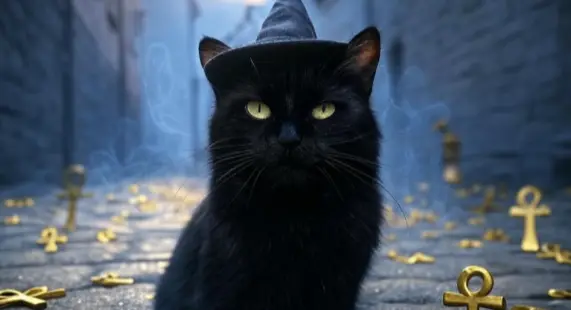
Folklore: Luck Good or Bad?
Black cat symbolism has a rich and complex history that changes dramatically by culture. In Japan, black cats are seen as harbingers of good luck and prosperity.
By contrast, Western traditions usually associate black cats with death or misfortune. Tales of sailors letting black cats aboard to ensure safe voyages contrast sharply with stories of dodging them to avoid curses.
Whether or not black cats are seen as lucky or unlucky largely depends on personal beliefs.
Modern Views and Cultural Shifts
Fortunately, black cats are becoming more popular again. Social media campaigns and rescue organizations spotlight their charm, contributing to less adoption bias against them.
Black cats continue to be shining examples of cherished companions and intriguing symbols of secrecy. People generally associate them with otherworldliness, the intuitive, and the spiritual connection.
Why Do Cats Stare?
Your cat’s stare is a complex mix of communication, instincts, and curiosity. Due to their mysterious nature, black cats often exhibit this behavior, which often carries significant spiritual symbolism. Learning to interpret a cat’s gaze can provide spiritual insight, helping you better understand your feline friend and build a more rewarding bond with him.
Feline Communication Via Gaze
Cats are masters of body language, and their eyes often speak much louder than words, revealing their mood and their motivation. In fact, direct eye contact can be an indicator of trust when accompanied by other body language cues such as relaxed ears or a calm, upright tail. Domestic cats’ gazes are not as intense as those of wild cats, showing their relaxation within human-dominated spaces. Black cats often have beautiful eye colors that “pop” against the backdrop of their all-black coats. This extraordinary aspect can cause their stare to seem especially penetrating, frequently inciting a feeling of intimacy or intrigue.
Affection Through Slow Blinks
A slow blink from a cat means they trust you and feel at ease in your presence. Returning this gesture builds the same connection and comforts the feline with your faithfulness.
This behavior sometimes soothes both the cat and the human, perpetuating a relaxing and trust-filled bond.
Assessing Surroundings and Curiosity
Curiosity is at the heart of almost everything a cat does, and that profound gaze is often a reflection of its spiritual symbolism. It serves as an express train to figuring out the world around it. Whether it’s checking out a new object or trying to read your mood, your cat’s stare embodies its innate desire for spiritual insight.
Seeking Attention or Resources
Cats might stare at you with their profound gaze to indicate they’re hungry or want to play. Understanding these signs can provide spiritual insight into their needs, fostering a positive bond.
Potential Health Indicators
Sudden or unusual changes in a cat’s profound gaze may signal pain or distress, highlighting the spiritual significance of their well-being and encouraging attentive care.
Decoding the Black Cat’s Stare
Since the beginning of time, humans have been captivated by the black cat’s stare. Its stare is often rife with powerful meanings shaped by society, mysticism, and individual perception. Others consider it a harmless display of kitty curiosity.
For some, there are more mystical interpretations, thinking it is a representation of spiritual messages or a manifestation of your own energy and mental/emotional condition.
Normal Feline Behavior First
Staring is an activity all cats love, regardless of coat color. Whether they’re communicating, keeping an eye on you, or just surveying the room, cats use their stares for a number of reasons.
Your black cat could either be friendly and interested in you or taking stock of its surroundings. If you want to read its stare, it’s important to look at other signals, such as body stance, tail position, or sounds made.
For instance, a deep, mellow body with a long, focused stare might mean calm, focused interest. Getting in tune with normal cat behavior will better prepare you to interpret these exchanges, particularly as a companion animal guardian.
Symbol of Incoming Fortune
Under the right circumstances, cultural beliefs sometimes view black cats as harbingers of good luck. In Japan, it’s believed black cats bring good luck, and Scottish folklore suggests their arrival heralds wealth.
Perhaps a black cat’s stare is giving you an invitation to see good things coming or to be more receptive to unexpected opportunities. Thousands more have told us personal stories of surprising black cat success around every corner.
These stories only serve to bolster the black cat’s positive luck-bringer attributes.
Omen or Warning Sign?
In some folklore, a black cat’s stare is considered a harbinger of bad luck. I.e., seeing one at night may increase its meaningfulness, specifically calling you to listen to your intuition.
Positive or cautionary, the significance usually depends on your interpretation and what’s going on at the time of your encounter. Slowing down and learning to pay attention to your feelings in those moments can help you get clearer.
Media’s Influence on Perception
From many past experiences, we know that the media wields almost unparalleled power in determining how we see the world. Looking specifically at black cats, we can see this impact reflected in the changing perception of their symbolism over time.
Media representations, too frequently based on the vicious cycle of trauma-informed selective reporting, have contributed to damaging stereotypes. Whether through superstition or stigmatization, these negative portrayals have significantly influenced public perception of black cats, creating connections to mystery, magic, and even evil.
Witchcraft Associations in Stories
In folklore and early literature, black cats were common familiars to witches. This association further established them as harbingers of the supernatural.
These tales reinforced the notion of black felines as omens of calamity or instruments of sorcery. During the infamous European witch trials, black cats were often accused of being witches’ familiars.
This connection stoked a legacy of violence, fear, and suspicion that continued for generations. Through literature and storytelling, this account continued throughout Europe for centuries, where black cats represented witchcraft.
Modern reinterpretations in literature and cinema are smashing those archaic ideas to pieces. They are putting black cats in more positive and empowering contexts.
Black Cats as Magical Familiars
The idea of black cats as magical familiars only increased their mystique. Usually described as protectors or guides of witches, this folklore enriched their connection with intuition and paranormal force.
So it’s no surprise that popular culture has latched onto this symbolism, making it something fascinating in its own right. Fortunately, most people today see black cats as bringing good luck and mystery, instead of death and doom.
Evolving Media Portrayals Today
Today, the media has contributed in several positive ways to helping change the image of black cats. Television series and social media networks magnify their singular cuteness and heart-melting behavior.

Campaigns encouraging black cat adoption and their high-profile role in recent family-oriented movies have contributed to changing outdated perceptions. These fabulous portrayals are reflected in positive upticks in adoption, persuading more adopters to view black cats as great pets and companions.
Personal Experiences With Stares
How we read a black cat’s stare says a lot about our values and history. When a black cat stares at you, it can be a sign of the most profound, even magical bond. Most think their all-seeing stare inspires inquiry, challenging you to swim down the rabbit hole of existence with wonder and excitement.
Taking the time to reflect on your personal experiences can help you understand what you were feeling and why you were in these situations.
Common Anecdotes Shared Online
Personal narratives featuring black cats fill the digital landscape, frequently emphasizing motifs of fortune, foresight, or otherworldly direction. Another wrote about the dream of a little black cat. In the dream, the cat offered an unexpected sense of safety, which they linked to receiving defense from spirit guides.
Another remembered a feral black cat that insisted on adopting them, telling us that this cat’s stare was harrowingly deep. Whether comforting or confusing in their unfolding, such experiences more often than not have an emotional depth that beckons contemplation.
Sharing these personal experiences creates an embedded sense of community. They show how our personal experiences and the way we process them influence our collective perception of black cats.
My Unique Black Cat Encounter
On my regular bus route, I saw an experience that changed my life. Three black kitties strolled across a wide open street in unison, one after another. We knew it was important, we just didn’t know what that truly meant.
The emotions of this experience stayed with me, prompting me to think deeply about what such moments represent. Your personal experiences, even if seemingly insignificant, can be just as powerful.
How To Interpret Your Experience
Imagine how scared you get when a black cat’s profound gaze meets yours. Context and personal beliefs, including popular cat superstitions, play a major role, and keeping a journal can help uncover spiritual meanings over time.
How To Respond Appropriately
When a black cat looks directly into your eyes, take the time to respond wisely in that moment. This profound gaze could hold spiritual significance tied to cultural beliefs or even intimacy. Understanding how to respond can deepen your bond with the animal and provide valuable spiritual insight into its needs and behavior.
Read the Cat’s Body Language
A cat’s intense gaze usually complements even more subtle body language indicators. Relaxed ears, a neutral tail, and slow blinks all show that an animal is at ease. Flattened ears, a swishing tail, and dilated pupils indicate that your pet is uncomfortable or stressed.
Learning to recognize these signs will help you understand if the kitty is comfortable or requesting some distance. For example, if the cat keeps a slow blink and an open mouth, she is comfortable and inquiring. Being able to identify these behaviors will help you respond in ways that engender trust, such as providing calm companionship or soft engagement.
Try Offering a Slow Blink
Cats convey feelings of trust and affection by giving slow blinks. When you slowly close and open your eyes, you recreate this movement, communicating trust and love. This basic gesture goes a long way toward comforting the cat and building a bond.
For example, if a black cat stares at you, responding with a slow blink may calm its energy, encouraging positive interaction.
Respect Boundaries and Space
Cats are very independent animals, so you have to honor their need for space. Don’t rush in too fast or try to impose engagement. Just give the cat time—allow it to approach you when it’s ready.
Giving patience SFC Patience, the state of calmness and understanding, proves respect and lowers anxiety, establishing a soothing environment that welcomes shared comprehension.
Understand the Stare’s Context
Take into account the environment, time of day, and the cat’s temperament. A long gaze may signal a desire to know more, a desire to engage, or, in some cases, a medical condition that needs attention.
Digging deep into cultural perspectives, such as Japanese or Norse Shinto beliefs, can help you express gratitude or appreciation on a deeper level.
Debunking Black Cat Myths
Black cats, often associated with various interpretations of spiritual symbolism, have been the victims of myths that have altered their perception for centuries. Misconceptions rooted in history and folklore can lead to fears surrounding these mysterious animals, but dispelling the myths encourages compassion and understanding of their spiritual significance.
Unraveling the Bad Luck Myth
In medieval Europe, the idea spread that black cats were harbingers of bad fortune. This notion originated from their ties to witches and the occult, brought on by their nighttime behavior and link to the goddess Hecate. Folklore and media have contributed to the spread of these myths, routinely depicting them as harbingers of misfortune.
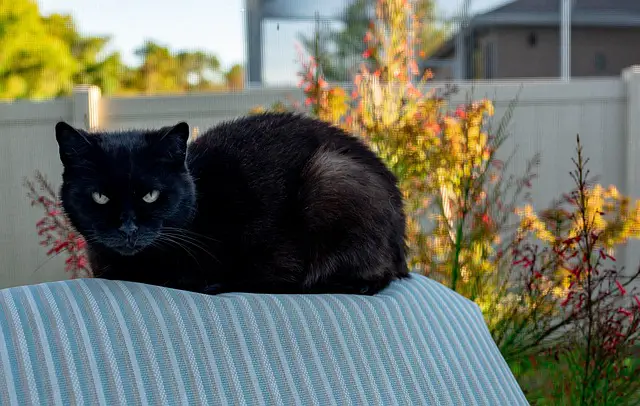
This belief is not universal across cultures! In Japan, for example, it’s actually a good luck omen if a black cat crosses your path. Counter-narratives celebrating black cats as symbols of luck and protection challenge these negative stereotypes. They encourage reflection on how such beliefs influence perceptions.
Are Black Cats Truly Different?
The truth is, from a behavioral standpoint, there is no scientific evidence that black cats are any different than their feline counterparts. Just because their fur is all black doesn’t mean their personality isn’t all sunny (just like any other cat).
A black cat’s behavior and perception come from its upbringing and surroundings, not superstition. Focusing on character rather than appearance when adopting ensures better compatibility. Black cats, like others, are affectionate companions capable of forming deep bonds.
Addressing Adoption Rate Issues
In fact, it is common for shelters to see black cats experience lower adoption rates and higher rates of euthanasia, with 70% euthanized in some cases. Superstitions play a large role in this, but efforts like the ones above that encourage adoption of black cats help fight this trend.
Sharing these positive stories and opening your hearts to black cats when you adopt can change these tragic statistics and save more lives.
Embracing the Enigmatic Cat
Black cats have long inspired with their enchanting air of mystery. Their presence is beguiling, and their elusiveness only heightens our curiosity. The moment a black cat meows directly at you, it captures your heart, challenging you to look beyond their mysterious allure and the hamsters they denotes. This intriguing behavior can be seen as a spiritual sign, urging us to explore deeper meanings in our lives.
Throughout history, black cats have been worshipped in various cultures, such as ancient Egypt, where they were associated with spiritual symbolism and protection. This reverence hints at their deep connection to magic and the spiritual realm, enkindling in us the courage to trust our instincts and go deeper within ourselves.
These elusive beasts serve as wonderful but humbling reminders to approach life with a sense of wonder and curiosity. Their serene but curious expression encourages you to open yourself up to new ideas and experiences, inviting spiritual guidance along your journey.
In Jungian psychology, this idea relates to the notion of the shadow self—those parts of our personality that we hide from others and sometimes even ourselves. By welcoming the enigma of black cats, we can face our shadow selves and make them a part of us. This journey develops greater self-awareness and ignites a process of personal transformation.
Setting aside how much spiritual significance matters, black cats are just great animals. Research documents that they are capable of developing secure, emotionally attuned attachments to their human caretakers, providing a soothing presence and connection. Their profound gaze often communicates a sense of understanding that transcends words.
Beyond their mischievous side, black cats’ presence more often than not invites peace, calm, and even creativity, as they are linked to artistic and intuitive flows. Consider the black cat spirit animal; traditionally, in many cultures, they have been seen as harbingers of good fortune and prosperity.
Their ongoing appearances add a dash of hopeful mystery and magic to daily life, reminding us to embrace the unknown and trust in the spiritual insights that these feline friends can bring.
Conclusion
Your black cat’s penetrating gaze does not hold secret hexes or sorcery. It’s a fleeting look of inquisitiveness, possibly an indication that they feel comfortable with you or you intrigue them. Whether they’re black or otherwise, our cats have their own unique way of communicating with us, and using their eyes is a big part of that. Forget the new legends, too — these kitties just want to be your pal, not be a harbinger of doom.
It’s our responsibility to look past the tales and fall in love with the colorful, quirky spirit that hides behind those shining eyes. Whether they’re staring at you because they’re hungry, want to play, or simply like to watch the world go by, you have to love those little guys.
So the next time you find yourself having an intense stare down with a black kitty, consider it an opportunity to bond. You may find that you come to know a new side of these enigmatic companions.
Frequently Asked Questions
What does it mean when a black cat stares at you?
When a black cat stares at you, it may be out of curiosity, trust, or quietly observing, embodying the black cat spirit animal’s mysterious nature. Staring is their way of actively seeking information, reflecting their profound gaze and spiritual significance as they interact with the world around them.
Is a black cat staring at you a bad omen?
So no, it’s not a bad omen. Myths about black cats stem from dark superstitions and old spiritual beliefs. A profound gaze is little more than a black cat’s way of taking in their environment or communicating with you, certainly nothing to do with misfortune.
Why do cats stare at humans?
Cats often stare at humans with a profound gaze to communicate, observe, or express emotions, tapping into their mysterious nature. This behavior can reveal spiritual meanings or simply be their way of socializing.
Do black cats have special meanings compared to other cats?
Cultural beliefs have imbued black cats with various spiritual meanings, but scientifically speaking, they’re just cats like any other. Their behavior, including their profound gaze, doesn’t necessarily hold any special or magical significance.
How should I respond when a black cat stares at me?
It’s best to do this slowly, calmly, and gently, as a black cat’s mysterious nature can be easily misunderstood. If a feline friend is near you, blink slowly to communicate that you’re not a threat, respecting the spiritual significance of their gaze in the spiritual realm.
Are black cats really symbols of bad luck?
Nope, that’s a myth. Instead, in certain communities, humans disproportionately label black cats as harbingers of misfortune, despite their spiritual significance. In truth, they’re no more bad luck than any other cat, and every bit as loving and playful!
What makes black cats so mysterious?
Their shimmery beauty and legends of old add to their allure, often tied to various interpretations of spiritual symbolism. In truth, they’re not one bit more mysterious than any other cat—they’re just feline friends with different-colored coats.


